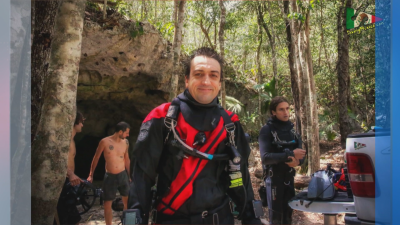Encounters between bears and humans have become increasingly frequent. Their nocturnal wanderings through the streets of villages and towns are no longer exceptional. The government has now introduced a new protocol for responding to bears entering populated areas. It appears that climate change is also altering the behaviour of these animals.
Between 70% and 90% of a bear’s diet in Bulgaria is plant-based. Warm winters, dry summers, and spring frosts leave the animals starving.
Alexander Dutsov, WWF: “There were no plums no wild cherries, no strawberries, not even beech nuts – nothing. This leads to a shortage of food, forcing many animals to search elsewhere to survive.”
As bears move into new territories, they often pass near settlements. Open bins, rubbish dumps, and food waste are a strong attraction, and the bears quickly become accustomed to this easily accessible food.
Alexander Dutsov, WWF: “They target poorly secured rubbish bins, unprotected beehives, and domestic animals. The truth is, due to agricultural and infrastructural development, we have confined them to very small areas, leaving them almost nowhere else to find alternative food sources.”
In the wild, everything is interconnected. Bears rely on abundant food in autumn to build fat reserves and on cold winters to hibernate and conserve energy. If winters are warm, however, they remain active and continue searching for food.
At the Belitsa Bear Sanctuary, the rhythm is different. In autumn, the park’s 17 residents – mostly former dancing bears – rest, eat generously, and gain weight. Ten of them are already asleep. Mima was the first to retire to her den in early November, followed by Iva and Standi.
Vili Trichkova, Belitsa Bear Sanctuary: “Our record for hibernation is 166 days – almost five months and 15 days. In the wild, they usually sleep only two to three months, during the coldest months, sometimes just a month if there’s snow. Here, we are happy that the bears are calm and can sleep peacefully.”
The newest, playful residents – seven-year-olds Frol and Frosia, rescued from a zoo in Ukraine – have been at the sanctuary for a month. Energetic and curious, they too are preparing for hibernation.
Vili Trichkova, Belitsa Bear Sanctuary: “They are adapting extremely well, which is why we expect them to enter hibernation soon.”
In autumn, bears in the park consume around 20 kilograms of food daily. Wild bears, by contrast, must travel long distances to feed. Conservationists say future conflicts between bears and humans can be prevented through proactive measures.
Alexander Dutsov, WWF: “We offer conditions that are very attractive to them, so it is important to keep them away from human areas. Our neighbours have long used secure bins that bears cannot access and protect their beehives and domestic animals with electric fencing to prevent possible attacks.”
The brown bear is a protected species in Bulgaria. Its appearance near human homes is a warning that nature is changing faster than we can respond.









 Чуй новините
Чуй новините Подкаст
Подкаст




















